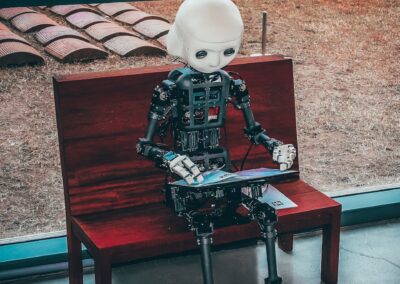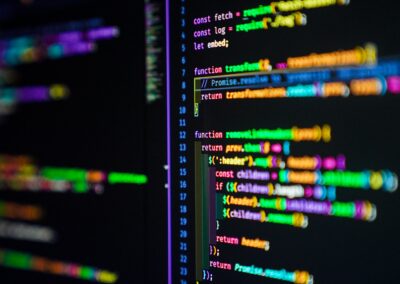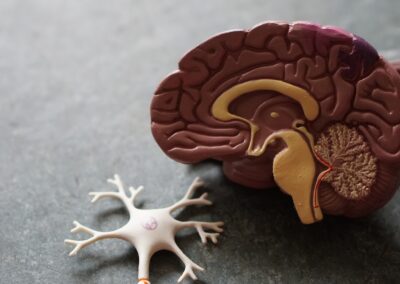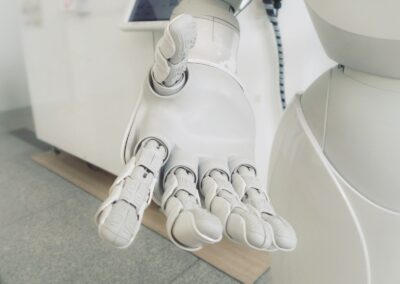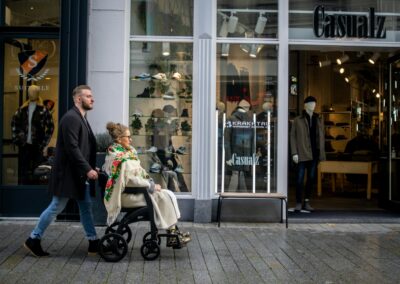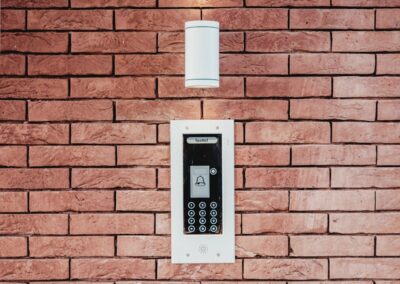Exploring the Impact of Brain-Computer Interfaces on Learning and Memory Retention
Revolutionizing Education with Brain-Computer Interfaces
The potential applications of BCIs in improving learning and memory retention in educational settings are vast and promising. BCIs enable direct communication between the brain and external devices, which can significantly enhance cognitive functions, making them a game-changer for the education sector.
In Saudi Arabia and the UAE, educational institutions are increasingly integrating advanced technologies to foster innovative learning environments. The adoption of BCIs can further this goal by providing personalized learning experiences that cater to individual students’ cognitive capabilities. For instance, BCIs can monitor brain activity to identify optimal learning times, allowing educators to tailor their teaching methods accordingly. This personalization can lead to more efficient learning processes and better retention of information.
Moreover, BCIs can facilitate the development of interactive and immersive learning platforms, such as virtual reality (VR) and augmented reality (AR) environments. By integrating BCIs with these technologies, students can engage in highly interactive learning experiences that stimulate multiple senses, leading to improved memory retention and a deeper understanding of complex subjects. This innovation aligns perfectly with the ambitious educational goals of Saudi Arabia and the UAE, aiming to position themselves as leaders in modern education.
Enhancing Memory Retention Through Cognitive Feedback
One of the most promising applications of BCIs in education is the ability to provide real-time cognitive feedback to students. By analyzing brainwave patterns, BCIs can detect when a student is struggling to grasp a concept or when their attention is waning. This immediate feedback allows educators to intervene promptly, offering additional support or adjusting teaching strategies to better suit the student’s needs.
In Dubai and Riyadh, where cutting-edge educational initiatives are being implemented, the use of BCIs can significantly enhance memory retention among students. For example, BCIs can be used to develop adaptive learning systems that adjust the difficulty level of educational content based on the student’s cognitive state. This adaptive approach ensures that students remain engaged and challenged at an appropriate level, which is crucial for long-term memory retention.
Furthermore, BCIs can facilitate the creation of personalized study plans that leverage the most effective learning techniques for each student. By understanding how different brainwave patterns correlate with successful learning outcomes, educators can design study sessions that maximize retention and recall. This personalized approach can be particularly beneficial in high-stakes educational environments, such as those found in Saudi Arabia and the UAE, where academic excellence is highly valued.
Fostering Inclusive Education with BCIs
Brain-Computer Interfaces also hold significant potential for fostering inclusive education. Students with learning disabilities or cognitive impairments often face challenges that traditional educational methods cannot adequately address. BCIs can bridge this gap by providing tailored support that accommodates each student’s unique cognitive profile.
In the UAE and Saudi Arabia, where there is a strong emphasis on inclusive education, BCIs can be instrumental in ensuring that all students have equal opportunities to succeed. For instance, BCIs can assist students with attention deficit disorders by providing real-time feedback on their focus levels, helping them to stay engaged during lessons. Additionally, BCIs can support students with dyslexia by identifying the specific cognitive processes that are causing difficulties and providing targeted interventions to address these issues.
Moreover, BCIs can enhance communication and learning for students with physical disabilities. For example, BCIs can enable students who are non-verbal or have limited mobility to interact with educational content using their brainwaves, bypassing traditional input methods. This capability can open up new avenues for learning and participation, ensuring that every student can benefit from the advancements in educational technology.
Integrating BCIs with Artificial Intelligence and the Metaverse
The integration of BCIs with Artificial Intelligence (AI) and the Metaverse can further revolutionize education in Saudi Arabia and the UAE. AI algorithms can analyze the data collected by BCIs to identify patterns and provide insights into student learning behaviors. This synergy can lead to the development of highly effective educational tools that adapt to the needs of individual learners.
In addition, the Metaverse offers a virtual world where students can engage in immersive learning experiences. By combining BCIs with the Metaverse, educators can create virtual classrooms that replicate real-world environments, providing students with practical, hands-on learning experiences. This integration can enhance engagement and motivation, making learning more enjoyable and effective.
For example, a student studying ancient history in Riyadh could use a BCI to enter a virtual reconstruction of an ancient city, exploring its streets and interacting with historical figures. The BCI could monitor the student’s engagement and cognitive load, providing feedback to ensure that the learning experience is both enjoyable and educational. This innovative approach to education aligns with the vision of Saudi Arabia and the UAE to be at the forefront of technological advancements.
Executive Coaching and Professional Development with BCIs
Beyond traditional education, BCIs can also be valuable tools for executive coaching and professional development. In Dubai and Riyadh, where business success and leadership skills are highly prized, BCIs can provide executives with insights into their cognitive processes, helping them to optimize their performance and decision-making abilities.
For instance, BCIs can be used to develop personalized coaching programs that target specific areas of improvement, such as stress management or strategic thinking. By understanding how different cognitive states impact performance, coaches can tailor their guidance to help executives achieve their full potential. This personalized approach can lead to more effective leadership and better business outcomes, contributing to the overall success of organizations in Saudi Arabia and the UAE.
Furthermore, BCIs can facilitate continuous learning and development for professionals. By providing real-time feedback on cognitive performance, BCIs can help individuals to identify areas where they need to focus their efforts, ensuring that their professional development is aligned with their goals. This capability is particularly valuable in dynamic business environments, where continuous learning is essential for staying competitive.
Conclusion: The Future of Education with BCIs
The potential applications of BCIs in education are vast and hold the promise of transforming learning and memory retention in unprecedented ways. In Saudi Arabia and the UAE, where there is a strong commitment to innovation and excellence in education, BCIs can play a crucial role in achieving these goals. By enhancing personalized learning, providing real-time cognitive feedback, fostering inclusive education, and integrating with cutting-edge technologies like AI and the Metaverse, BCIs can revolutionize the educational landscape.
As educational institutions in Riyadh and Dubai continue to explore and implement these advanced technologies, the future of education looks brighter than ever. The adoption of BCIs can ensure that students are equipped with the skills and knowledge they need to succeed in a rapidly evolving world, paving the way for a new era of educational excellence.
—
#BCIsInEducation, #BrainComputerInterfaces, #EducationTechnology, #MemoryRetention, #LearningEnhancement, #ModernEducation, #CognitiveTechnology, #UAE, #SaudiArabia, #Dubai, #Riyadh



